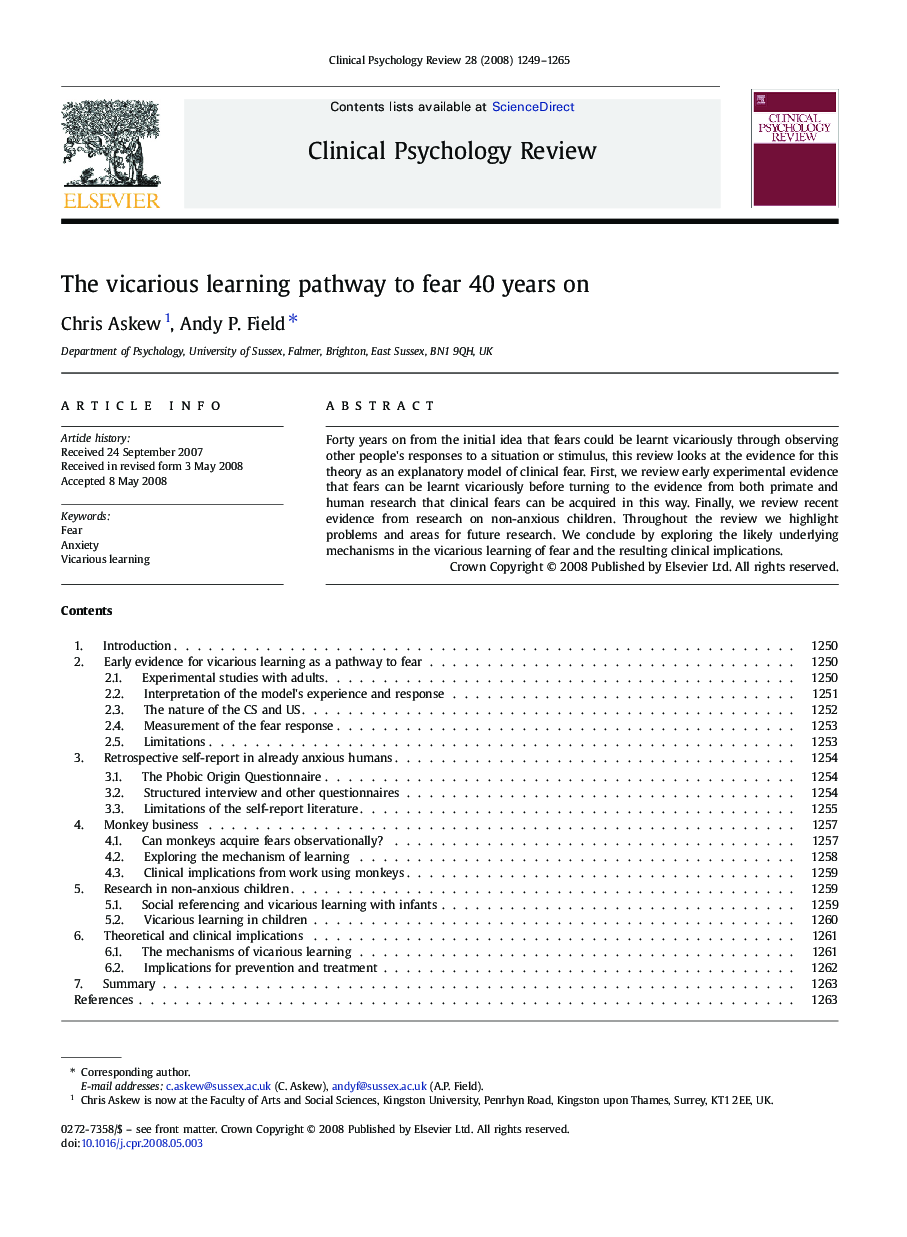| Article ID | Journal | Published Year | Pages | File Type |
|---|---|---|---|---|
| 904086 | Clinical Psychology Review | 2008 | 17 Pages |
Abstract
Forty years on from the initial idea that fears could be learnt vicariously through observing other people's responses to a situation or stimulus, this review looks at the evidence for this theory as an explanatory model of clinical fear. First, we review early experimental evidence that fears can be learnt vicariously before turning to the evidence from both primate and human research that clinical fears can be acquired in this way. Finally, we review recent evidence from research on non-anxious children. Throughout the review we highlight problems and areas for future research. We conclude by exploring the likely underlying mechanisms in the vicarious learning of fear and the resulting clinical implications.
Keywords
Related Topics
Health Sciences
Medicine and Dentistry
Psychiatry and Mental Health
Authors
Chris Askew, Andy P. Field,
